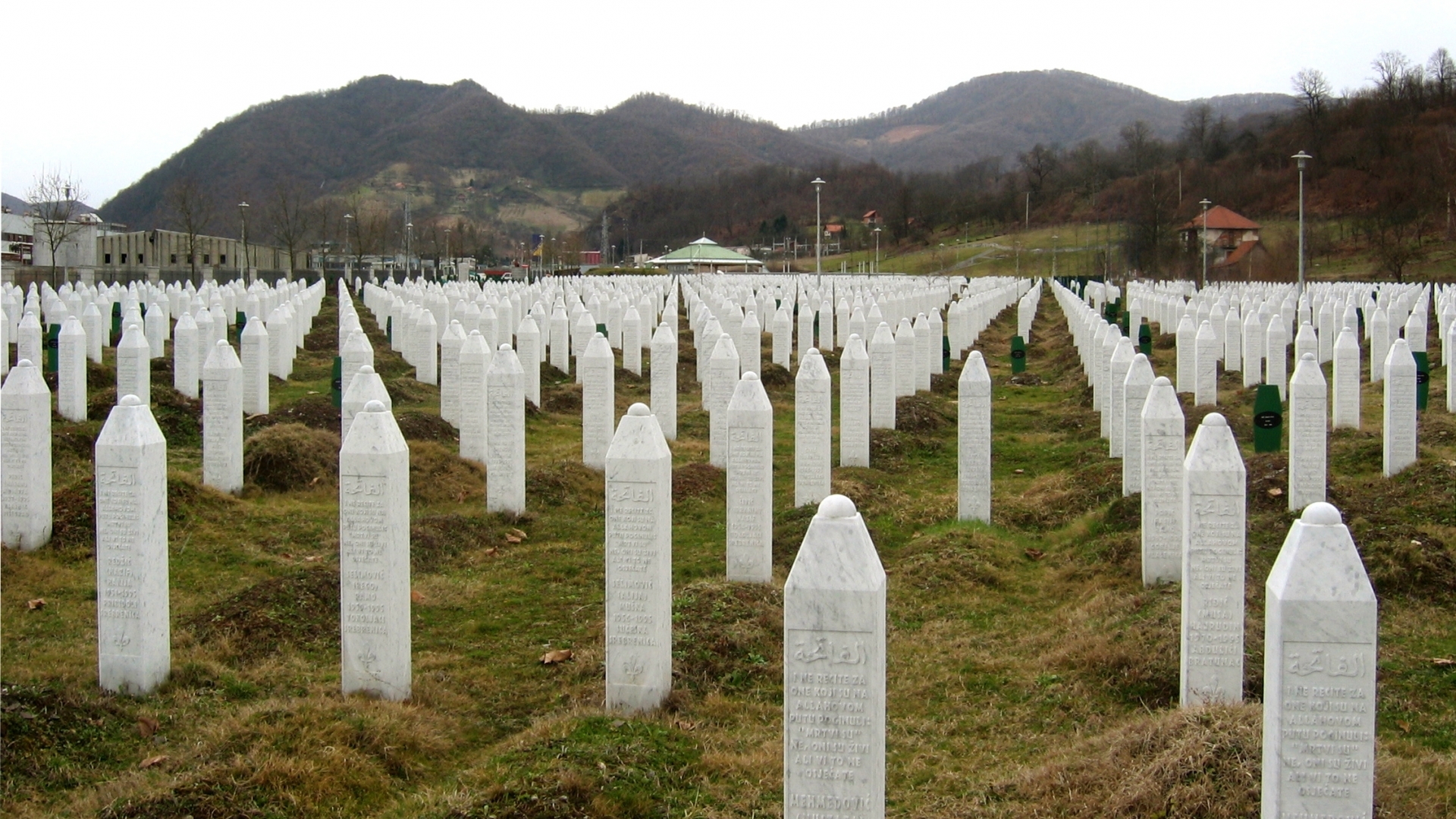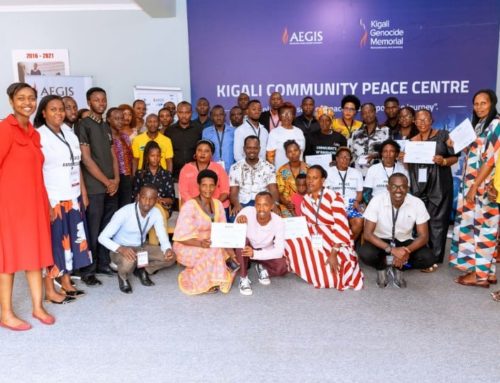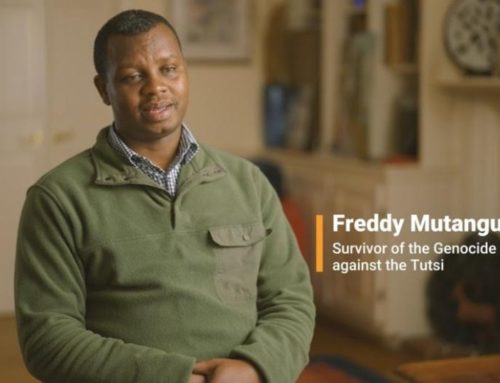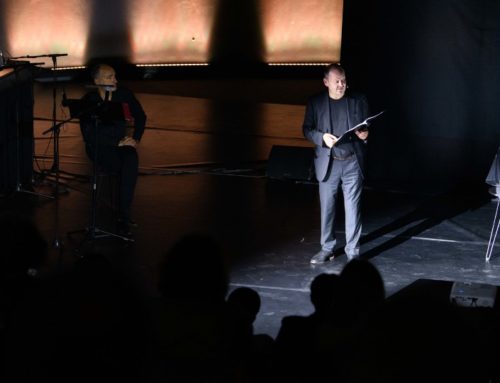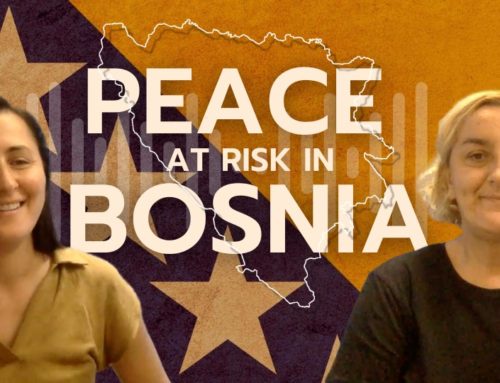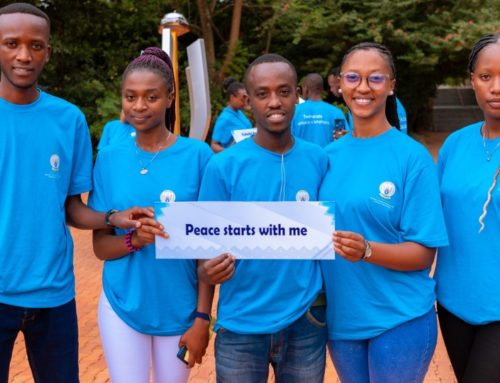In a powerful interview marking the 26th anniversary of the Dayton Peace Accords which ended the Bosnian War (see https://youtu.be/XPlGwwKfXNU), Dr Emir Suljagić – Director of the Srebrenica Genocide Memorial Centre in Bosnia Herzegovina – predicts the country’s return to war in six months if there is no international intervention to stop reestablishment of the Bosnian Serb Army, the force which carried out the genocide at Srebrenica. It’s a move being threatened, in violation of the Dayton Accords, by Milorad Dodik – the Serb member of Bosnia’s tripartite presidency.
Over 8,000 men and boys were murdered in the Srebrenica genocide, which Dr Suljagić himself survived as a 17-year-old working as an interpreter for UN peacekeepers.
“The prospect of a Bosnian Serb army being created, the prospect of a Bosnian Serb army barracks outside Sarajevo, it’s not only untenable, it’s an existential threat. So that is why the situation is as dangerous as it is,” says Dr Suljagić.
“This is not politics. This is people saying, “Get out, or we’re going kill you’.”
“This is the time to act. The time to act is not going to be in six months, because in six months, if Mr Dodik is allowed to run amock, we will be at war. And I’m not saying this lightly; I have seen war. I have seen violence. I have seen the kinds of things I don’t even want to remember. And for me to say this is, how can I say, not easy, but the prospect of my child going through the same thing as I did when I was 17 years old – and she’s hardly a year and a half – makes my blood boil…. It’s not a matter of politics any longer. This is not politics. This is people coming to our homes, again, and saying, you know, ‘You’ve got to get out, or we’re going kill you’.”
Suljagić advocates targeted economic sanctions and a new peacekeeper deployment in response. “It’s very simple; Mr Milorad Dodik is in the process of leaving a peace agreement. Parties leave peace agreements when they believe that the benefits outweigh the costs. What should be done is for countries such as Germany, the United Kingdom, the United States, to ensure that at this stage, early on, Mr Dodik, and all those who follow Him, are aware of the steep price that they will be paying down the road, should they decide to continue with this course of action. Whether it’s economic sanctions, which I believe at this point would be enough to cripple whatever effort he’s trying to mount, or also at this point, a symbolic military presence – literally symbolic. I mean, right now, we have 700 international troops in Bosnia Herzegovina. A NATO member battalion-sized unit, deployed in Bosnia, would serve as a deterrent.”
Call for action from EU, US, UK
Recorded for ‘Peace at Risk in Bosnia’, a new podcast series being launched by the Aegis Trust next week to unpack the crisis and possible solutions, Dr Suljagić was interviewed by the Aegis Trust’s Chief Executive, Dr James Smith.
“26 years ago I wasn’t at Srebrenica, but I very clearly remember the genocide happening,” Smith says. “With my brother Stephen, I was then about to open what became the UK National Holocaust Centre. We were building that Centre as a warning from history. Conducting the interviews in this podcast series, it’s been a shocking experience to hear and recognise those same warning signs again. This time, though, it is not coming as a surprise; we’ve seen what can happen with this ideology and this kind of leadership. And this time – with sanctions, peacekeeping, and education – there’s an opportunity to get it right. There needs to be a clear statement from the EU, America and the UK that efforts to break Bosnia and Herzegovina apart are not going be successful. There needs to be a clear rejection of Serb nationalism and Islamophobia, and a promise to stand with, and learn from, the survivors of the Bosnian genocide.”
Live discussion online today
In a live online event at 6.00pm GMT today Sunday November 21st, Dr Emir Suljagić will join Elmina Kulašić, Bosnia Director for Remembering Srebrenica UK, together with the Aegis Trust’s Executive Director Freddy Mutanguha, a survivor of the Genocide against the Tutsi in Rwanda, to discuss ‘Quo Vadis, Aida?’ – the 2021 movie set during the fall of Srebrenica. They will consider questions emerging from it around the failure of the international community, genocide denial, and ways in which artistic representations of genocide inform collective memory.
This live event is free and open to the public, with opportunity to put questions to the panelists throughout, but places are limited. To attend, register now at www.bit.ly/bosnia-rwanda

